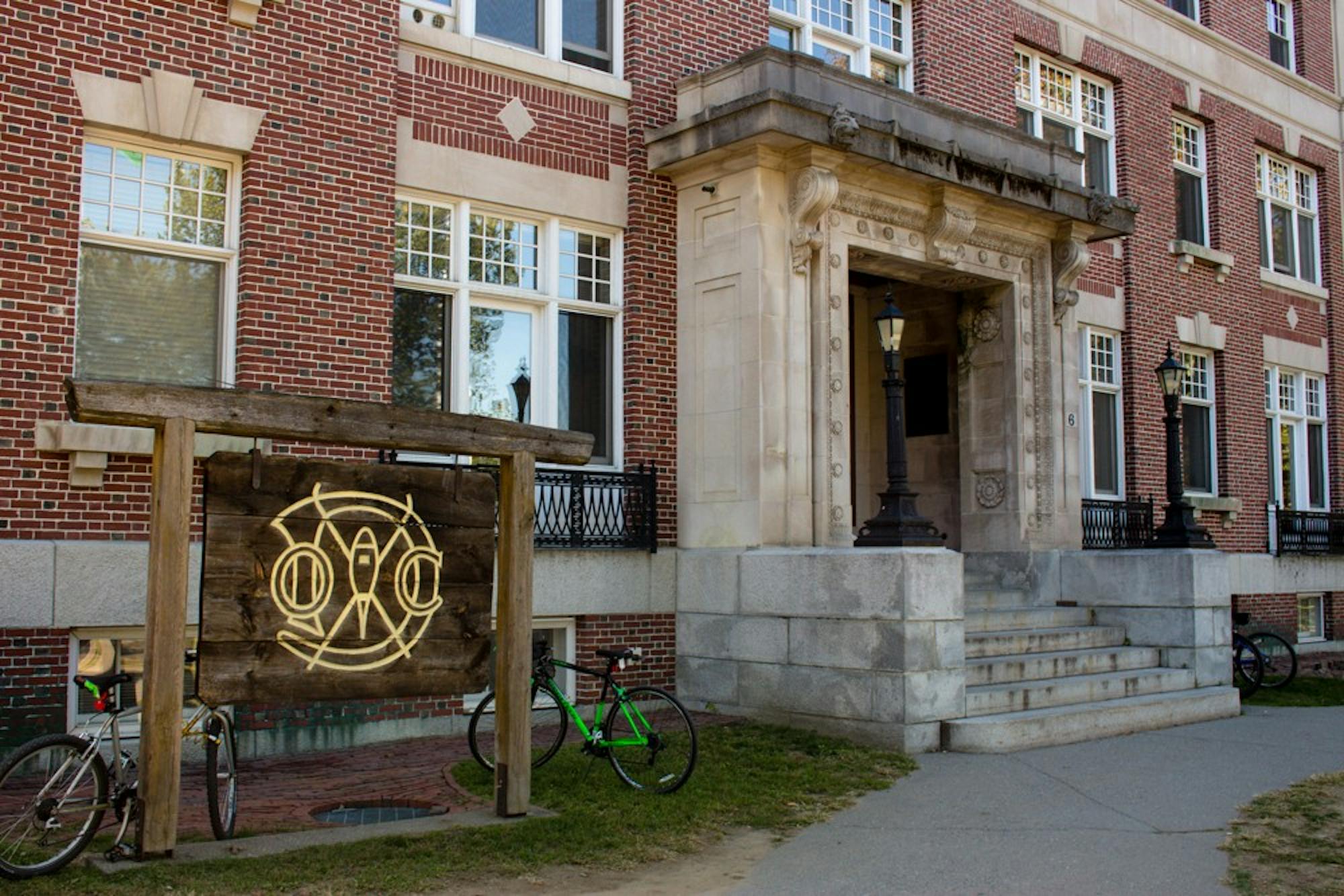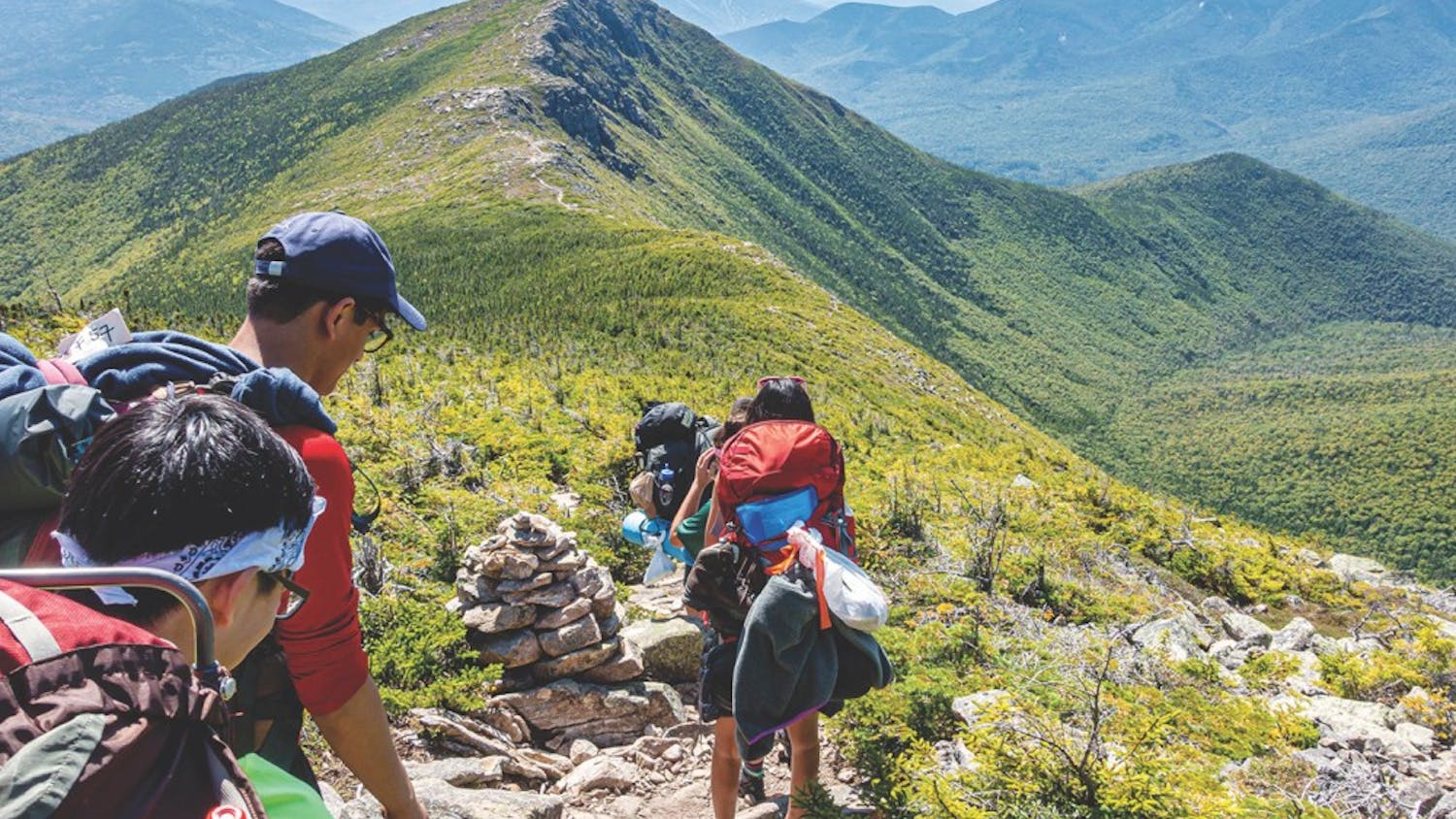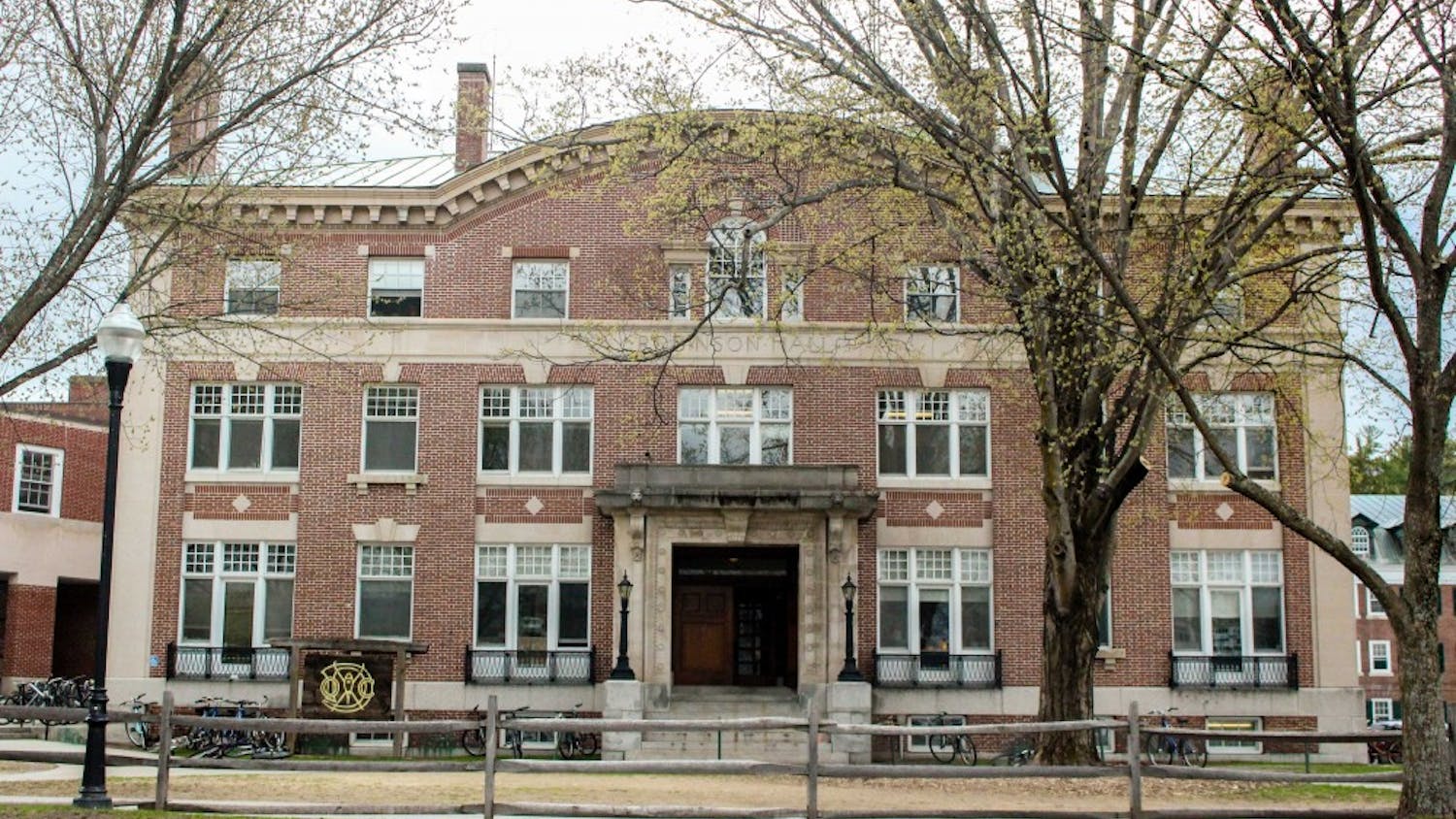The Class of 2023 this year chowed down on vegetarian lasagna, lugged blocks of Cabot cheese into the wilderness and struggled to sort out which of their trip leaders’ comments were helpful advice or pranks — much like previous classes of new Dartmouth students. However, there were a number of changes to the First-Year Trips program this year that impacted croolings, trip leaders and trippees alike.
Perhaps the most significant change was the movement of trip leader training from the traditional site of Gilman Island, a small piece of land on the Connecticut River just south of Hanover, to the Bema. According to an email statement addressed to the Trips volunteer community, during an exhibition of Trips artifacts, a map was discovered in Rauner Library that showed the island under a former name, one that included the n-word.
“Using this slur as the name of a location dehumanizes, marginalizes, and otherwise harms the Black families that resided there,” the email, signed by Maddy Waters ’19, Dorothy Qu ’19 and the Trips 2019 Directorate, stated. The email later asserted that the renaming of the island to Gilman Island serves to erase the history of its former inhabitants.
According to records in Rauner reviewed by The Dartmouth, the name was changed in 1969 by the New Hampshire state legislature. Dartmouth had leased land on the island from the New England Power Company for use by the Ledyard Canoe Club starting in 1950.
Because of the discovery of the old name, the email stated, trip leader training would be moved to the Bema.
“We also could not in good conscience ask volunteers to stay on the island knowing that it represents firstly a history of marginalization and harm and secondly the ongoing disregard of those experiences from the narrative of our wider community,” the email stated.
Qu told The Dartmouth that a major concern was the disproportionate impact, “especially those who may already feel alienated in the Trips setting and at Dartmouth.” She also said that the decision to use the Bema instead of Gilman Island was made after “many” internal meetings of the Trips directorate, and that the change likely improved aspects of the trip leader trainings.
“The Bema is really close, and it’s walking-distance [from campus], and also accessible in case a medical emergency came up,” Qu said. “It made people feel safer, people got way more sleep and it was easier to relocate to a rain spot if it did rain. Logistically speaking, it made awesome sense.”
Qu indicated that Gilman Island is not off-limits for future DOC activities.
“It’s not us saying, ‘Oh, because this place had a bad history, we can never use it again, or no one else can use it,’” she said. “It’s more like, if we don’t acknowledge it in the right way — and you can’t acknowledge it correctly if you don’t have the right information — then it’s unfair to have the burden on students who would be affected by it.”
Trips saw a variety of other changes this year, including a new trip, additional programming and sustainability efforts.
The newly-added trip, “Exploring the Upper Valley,” is designed to be wheelchair-accessible as well as “accommodating for students who are less comfortable in remote outdoors settings, whether their reasons are medical or personal,” according to a DOC memo provided to The Dartmouth by Qu.
“It basically is a way to engage with the community here,” Qu said of the trip, which visits Quechee, VT, the Shattuck Observatory and other locations in the Upper Valley.
Trips sustainability coordinator Hanover Vale ’20 noted another change: the provision of hair care products in Hanover and at the Moosilauke Ravine Lodge, a joint venture with the Office of Pluralism and Leadership and the Student Wellness Center.
“The point was to offer products for people with natural hair to protect it as they went on their trips,” Vale said, noting that students were offered both after the 50-yard swim test and upon arrival at Moosilauke. “There are specific products that are used to nourish the hair, protect it from the elements outside and restore some life after potentially getting your hair care ruined if you’re swimming.”
She added that, at the Lodge, there were also shea moisture products that would restore curls, something she would have appreciated on her trip.
“From my own personal experiences, I was about to go back into the town, back to run my errands, and I was looking like a disaster and wearing my hat,” she said. “I just think [providing hair products] was a really important, small thing.”
Compost from the Lodge was taken to Sweetland Farm in Norwich, VT instead of a Lebanon, NH landfill, according to Vale, a change from previous years.
New programming at the Lodge included an optional nature walk during free time at the Lodge and alternatives to the ghost story activities, the late-night dance party and the “sunrike,” a seven-mile sunrise hike that involves summiting Mount Moosilauke, according to Lodj Croo captains Katie Carithers ’20 and Sophie Smith ’20.
Instead of only having the opportunity to do the sunrike, ’23s had the option to engage in a “sunsight,” which involved students watching the sunrise from their sleeping bags on the Lodge’s leach field.
“A lot of people were really excited about that,” Smith said.
The alternative to the ghost story was a presentation about the Orozco murals put on in partnership with the Hood Museum of Art.
“It was really great to see so many first-years analyzing art and talking about academia critically,” Qu said, adding that “not everyone wants to listen to a scary story at night in the middle of nowhere.”
The late-night dance party took place at the same time as a stargazing event, also located on the leach field.
The sunrike also saw additional security measures, including keeping track of every student who went on the hike.
This year, trip leaders were required to highlight their trippees’ names on a form when they left for the hike and initial upon their return.
The main reason for changing the sunrike protocol was the two-day disappearance of Arun Hari Anand ’19 on Mount Moosilauke last spring. Anand had been separated from his group during a College-sponsored hike and was found during an extensive search-and-rescue operation.
Dorothy Qu is a former member of The Dartmouth staff.





